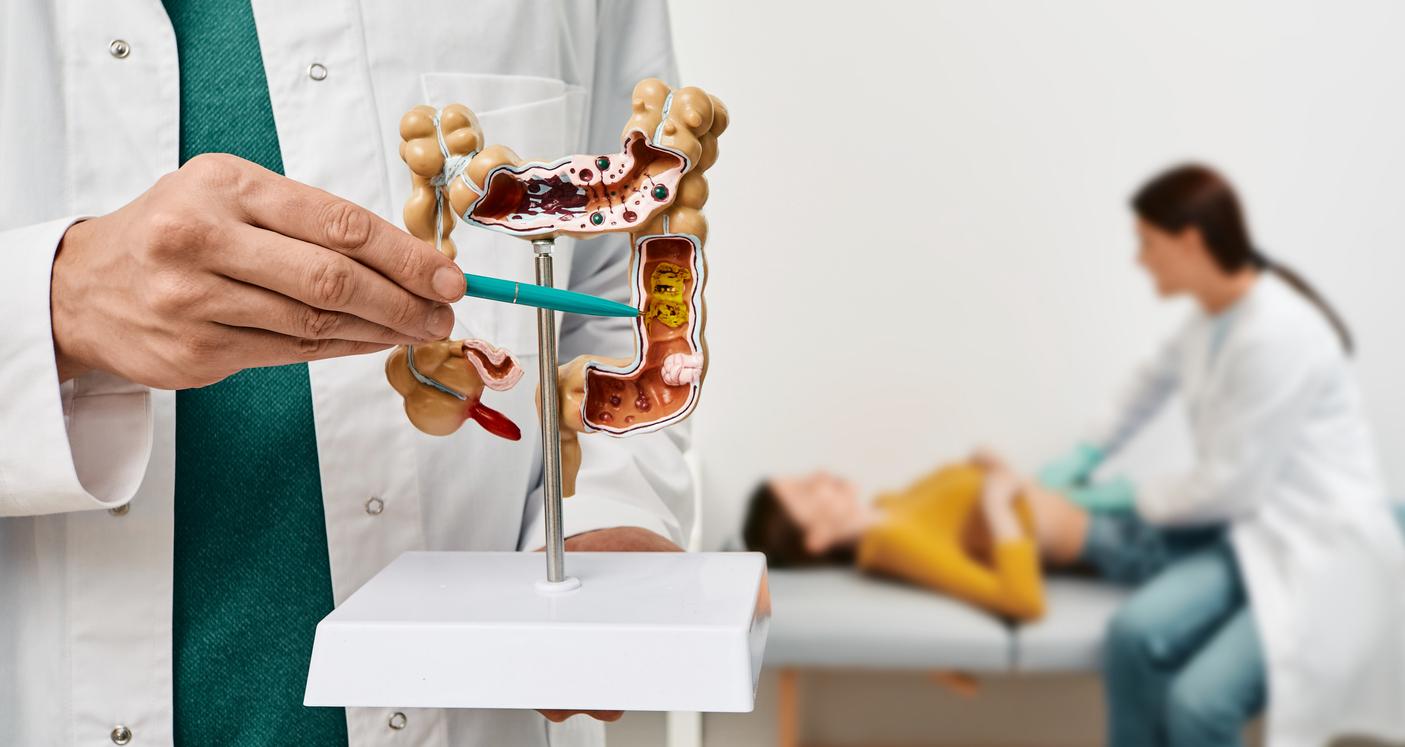The first symptoms of colorectal cancer are often visible in the stool. Knowing how to spot them speeds up treatment, and thus increases the chances of survival.

- Colorectal cancer is the third most common cancer in men.
- About 44,000 new cases were diagnosed in France in 2017.
- In most cases, it is an adenocarcinoma.
Saddles should not be taboo! They can provide valuable information about your health. In the case of colorectal cancer, monitoring your stool is essential. When the disease is detected early enough, the chances of survival are higher. “Colorectal cancer is a cancer with a good prognosis when diagnosed at an early stage.indicates the High Authority of Health.
What signs should alert?
Intestinal transit disorders are a symptom of colorectal cancer: constipation, diarrhea or even nausea. It can also be an urgent need to have a bowel movement, a feeling of incomplete evacuation of the rectum and the impression that the rectum is full, stools that are narrower than usual, efforts to push stools painful and ineffective, as stated in theHealth Insurance. The presence of blood in the stool is also a warning sign. Any change in the appearance, or texture, of the stool should be alerted to. If you experience any of these symptoms and they persist, it is important to seek medical attention.
How is the diagnosis made?
During the consultation, the first step is an interrogation which allows the doctor to identify possible risk factors, and to take into account the history. Then, he performs a clinical examination: digital rectal examination, to feel the wall of the rectum. “Digital rectal examination can diagnose rectal cancer if it is located less than 8 cm from the anusspecifies the Cancer Research Foundation. It allows in particular to evaluate the size of a rectal tumor and its distance from the sphincter.” If the examination confirms the presence of suspicious symptoms, a colonoscopy is prescribed, for “allow the doctor to visualize the mucosa of the patient’s intestinal wall”. When the diagnosis is confirmed, other analyzes are carried out to better identify the tumor and its severity.
There are different stages of colorectal cancer: stages 0 and I are the earliest, with the best prognosis, stage II corresponds to an evolution of the tumor, which crosses all the layers of the intestinal wall, in stage III, the cancer cells have migrated to the lymph nodes and in stage IV they have formed metastases. First, patients undergo surgery to remove the tumour, then sometimes chemotherapy and targeted therapy, such as radiation therapy.
Risk factors identified
The disease is sometimes linked to genetic causes, but lifestyle is strongly implicated in its onset. Thus, to limit the risks, it is important not to smoke, to limit the consumption of alcohol, to eat a balanced diet, to watch one’s weight and to practice physical activity regularly.
















